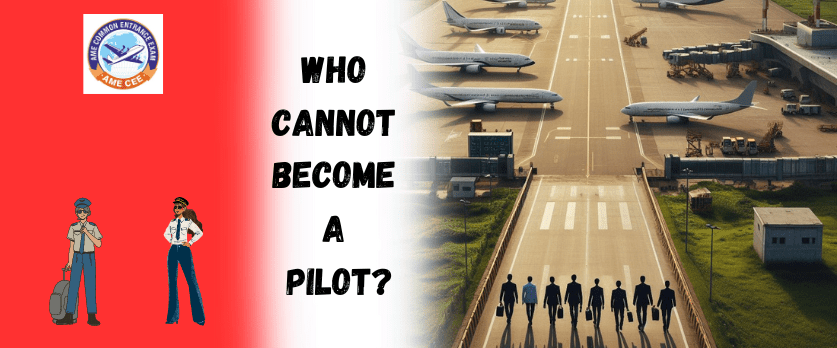The Directorate General of Civil Aviation (DGCA) in India, like other aviation authorities worldwide, sets certain eligibility criteria and medical standards to ensure the safety and competency of individuals aspiring to become pilots. While the specific requirements may vary, here are some common reasons why someone may not be eligible to become a pilot as per DGCA regulations:
Medical Disqualifications
Individuals with certain medical conditions that could compromise flight safety may be deemed ineligible. The DGCA conducts medical examinations through approved Aviation Medical Examiners (AMEs) to assess physical and mental fitness. Conditions such as significant vision impairments, hearing deficiencies, epilepsy, and certain psychiatric disorders may lead to disqualification.
Age Limitations
Age requirements are specified for each level of pilot license. For instance, individuals under the age of 17 are generally ineligible for a Private Pilot License (PPL), and those under 18 may not qualify for a Commercial Pilot License (CPL). Age limits are also defined for higher licenses like the Airline Transport Pilot License (ATPL).
Educational Qualifications
The DGCA typically requires a minimum educational qualification of 10+2 (or equivalent) with specific subjects like mathematics and physics for entry into pilot training programs. Higher education is often recommended but not always mandatory.
Criminal Record
A significant criminal record may affect eligibility. Individuals with serious criminal convictions may be disqualified from obtaining a pilot license due to the potential impact on aviation safety and security.
Drug or Alcohol Abuse
Individuals with a history of drug or alcohol abuse may be disqualified. Aviation authorities prioritize safety, and substance abuse poses a serious risk to flight operations.
Inadequate Language Proficiency
Proficiency in the English language is crucial for communication in the international aviation community. Individuals who do not meet the language proficiency requirements may face challenges in obtaining a pilot license.
Failure to Meet Training and Experience Requirements
Prospective pilots must meet specific training and flight experience requirements as outlined by the DGCA. Failure to complete the required flight hours, training modules, or examinations may hinder the qualification process.
Failure to Pass Examinations
Individuals who do not pass the required written and practical examinations during pilot training may not be eligible for the issuance of a pilot license.
To become an commercial pilot you may could join commercial pilot license through AME COMMON ENTRANCE EXAM (AME CEE) this examination you may join Commercial Pilot License approved by DGCA.


